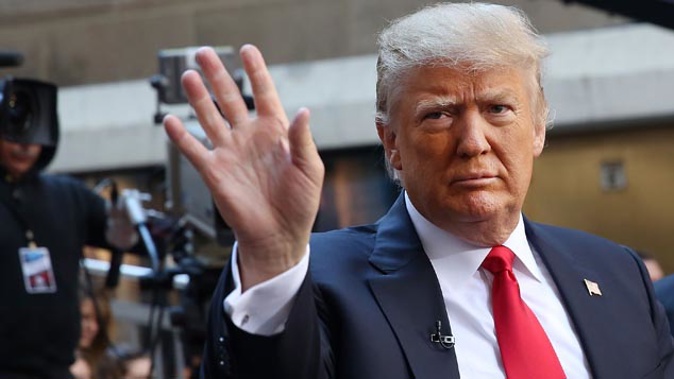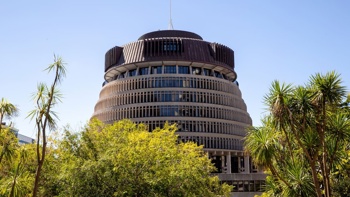
Bill English's reaction to Donald Trump winning the US presidency summed it up nationwide: "Pretty stunning".
The government, like others around the world, didn't think it was going to happen.
Now it has to work out how to deal with Trump's new administration.
No one in government thinks that's going to be easy, and no one in government knows what to expect.
Prime Minister John Key, who had repeatedly resisted media questions about who was going to win, is playing it straight.
After Hillary Clinton conceded defeat on Wednesday night, he issued a media statement congratulating Trump and said the government looked forward to New Zealand's strong relationship with the US continuing.
Unlike Key, Labour leader Andrew Little had made his pre-election assessment of Trump known: "He is unfit for public office".
At the time, Little probably believed Trump didn't have a chance of winning.
Faced with the unpleasant reality that he had won, Little decided he would "welcome a constructive relationship with the new president".
The Greens were horrified.
"I couldn't think of a worse president," said co-leader James Shaw.
In parliament, co-leader Metiria Turei took the most unusual step of rejecting the formal motion of congratulations.
The only party leader in a comfort zone was Winston Peters.
He had correctly forecast the result, as he did with Britain's Brexit vote.
It was "I told you so" time for the NZ First leader, who knew exactly why Trump had won.
A revolution was sweeping the Western world as people who worked hard and paid their taxes rebelled against "wealthy elitists" running their governments and conspiring to protect their own interests, he said.
This will sweep through New Zealand as well, Peters believes, and his party is the only one listening to the rebels.
The real issue for governments is whether Trump will follow through on his fiery rhetoric and the extreme commitments he made to American voters during the campaign.
There were many, but the one that will most affect New Zealand is Trump's attitude to international trade.
He vowed to tear up existing agreements and impose huge tariffs on imports to protect American jobs.
He was talking mainly about China, Mexico and the other cheap labour countries but the impact seems sure to be felt here as well.
The government is realistic about that.
"Some of the waves will wash up here," said English.
"It's important we are resilient and confident about our ability to deal with this uncertainty."
Key had a similar attitude.
"If there's a policy change in areas like trade, we'll have to learn to live with that," he said.
The first and most obvious casualty is the Trans-Pacific Partnership free trade agreement.
Trump was vehemently opposed to it, saying if it was ratified by the US before he became president he would scrap it.
President Barack Obama had hoped to get it through the US Congress during the so-called lame duck period before January's inauguration, but with Trump's victory and the Republicans controlling Congress that has become an impossible mission.
"The probability of it passing in the lame duck period is very close to zero," said Key.
"It's hard to believe that Congress is now going to vote for something he is so opposed to."
Trade Minister Todd McClay, however, is holding out a flicker of hope for the 12-nation agreement.
He said the partner countries need to talk about the TPP's future.
"I think there is much more discussion to be had around this but until the new administration is in place and settled, I'm not sure we're likely to see much progress."
That was the voice of reason - until the new administration is in place and its policies are settled, no government is going to know what it's facing under Trump's presidency.
Take your Radio, Podcasts and Music with you









